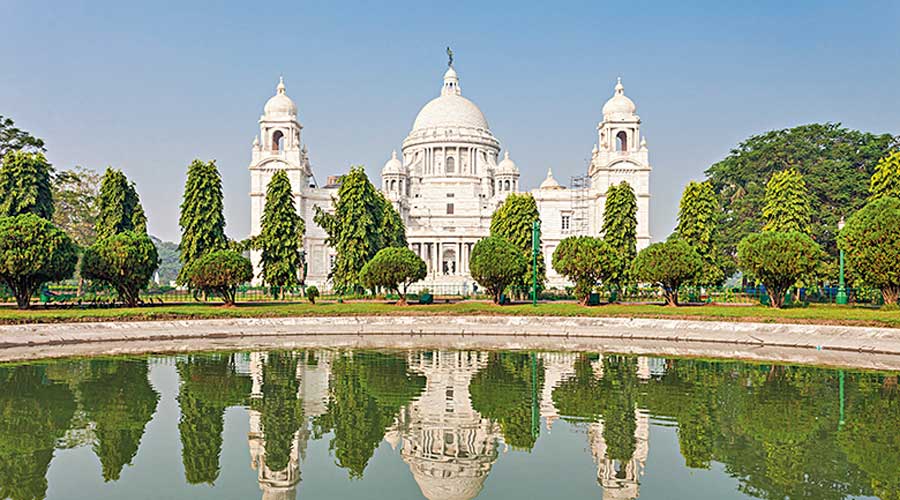Familiar comfort
Sir — Several reports show that the viewership of OTT platforms and the sale of books — physical, digital and audio — both saw an uptick since the onset of the Covid-19 pandemic. But it would be interesting to analyse what it is that viewers watched or read. Many of us found ourselves turning to old shows like The Office — the 2005 sitcom was one of the most-streamed shows on Netflix during the pandemic — and childhood delights like Tintin and Asterix instead of newer content. In a world where nothing is certain anymore, the assured joy provided by these time-tested classics is like a security blanket.
Arpita Sanyal,
Calcutta
Too late
Sir — It is heartening that the West Bengal government has finally woken up to the gravity of the situation and declared a partial lockdown from today. Swimming pools, spas, gyms, salons and other such establishments have been shut completely. Government and private offices are to function with just 50 per cent staff and schools, colleges and universities have been closed once again. But this may be too little, too late.
Given the images that one saw of the festive season with thousands thronging places like Park Street without masks or other Covid-19 precautions, the infection has already been spread. Since many of those contracting the Omicron infection are asymptomatic, chances are the infection will spread further. The need of the hour is to ramp up testing and to prepare the healthcare system for the onslaught of cases that the state is likely to experience soon.
Manashi Chakravarti,
Calcutta
Sir — Implementing a partial lockdown in West Bengal will not undo the disastrous outcome of the laxity shown by the state government during the festive season. These measures should have been put in place as soon as the first Omicron case was reported in the city.
Aneesh Jain,
Ujjain
Bound by time
Sir — The article, “Tick tock challenge” (Dec 29), by Uddalak Mukherjee made an interesting observation. He posits that clocks are devices used by the State to turn citizens into neatly-clicking cogs that keep the system running. But what about the biological clock? In the 1960s, two German scientists had come up with a fascinating chronobiological experiment to determine how much our body clocks are influenced by ‘zeitgebers’ — time cues such as sunlight, alarm clocks, or social interaction that nudge people to adhere to a 24-hour cycle.
Some 200 participants were made to live in bunkers free of any watches, windows, or alarm clocks. The results of the study showed that isolated from any time-telling devices, most people’s internal body clocks did not run on a 24-hour cycle, although most were programmed to live a day’s worth in around 25 hours. Could it be that even without the tyranny of clock towers erected in chowks, humans are slaves of Father Time?
Yashodhara Sen,
Calcutta
Sir — Besides our “sleek wristwatches”, there are three clocks that control our concept of time — the body clock, the solar clock and the social clock. The body clock is controlled by an individual’s internal biological rhythms, based in part on their genes — it makes some of us night owls and others early birds. The body clock is also affected by external rhythms of the solar clock, with its cycle of day and night. And by rhythms from the social clock, with its alarm clocks and work meetings. While the cycle of light and dark appears to be the most important daily synchronizing cue of human body clocks, in the absence of light, social factors can also play an important role in determining how one lives life.
A.K. Sen,
Calcutta
Digital future
Sir — While inaugurating the e-filing module for the Kerala High Court, Justice D.Y. Chandrachud said that people must change their attitude towards everything digital. One cannot help but agree. Digital transactions can become much easier if people are not scared of them.
Sonali Singh,
Calcutta
Sir — While Justice D.Y. Chandrachud is right in saying that people should learn to be more accepting of digital transformations, there are some essential elements that must be kept in mind. It is an unfortunate truth that most digital transactions need to be carried out in English.
When it comes to vernacular languages, Hindi, Bengali, Marathi and so on are the predominant choices in digital interfaces. This does not take into consideration hundreds of other regional languages and dialects, not to mention those with visual impairments and other disabilities. The future may be digital, but will it include all Indians?
Jiten Koley,
Mumbai
Sir — The process of e-filing of cases being implemented in the Kerala High Court is a step in the right direction. Given the high rate of pendency in Indian courts, digital filing will certainly make the process swifter by cutting out middlemen who cheat people in the name of providing legal assistance.
Saptarshi Dey,
Calcutta
Hidden treasures
Sir — The Victoria Memorial Hall completed 100 years on Dec 29, 2021. In this context, it is important to mention that the culture ministry had recently proposed to ramp up security arrangements and radio frequency identification tagging of the artworks and other articles at prestigious museums in the country, including the VMH.
What is also needed is a thorough cataloguing of all the VMH’s treasures that can be available online to art aficionados across the globe. This may encourage tourists to visit West Bengal specifically for the art treasures housed at VMH.
Roshni Sen,
Calcutta










